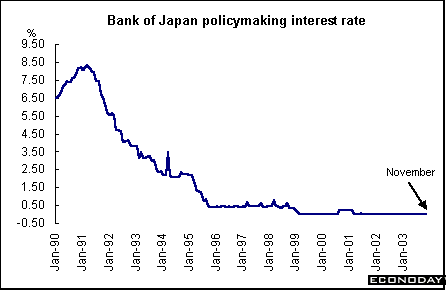

|
Like other central banks, the Bank of Japan's primary goal is to maintain price stability of the financial system to provide the foundations for sound economic growth. Unlike other central banks, the Bank of Japan has been fighting deflation - falling prices - rather than keeping a lid on price increases or inflation. Many have suggested that the setting of an inflation target could help pull the economy out of the continuing deflationary spiral, but the Bank disagrees. The Bank of Japan is zealous in protecting its recently won independence from control by the Ministry of Finance. There has been continual friction between the Bank and the Finance Ministry for some time now. The Bank of Japan maintains a zero interest rate policy because of the poor Japanese economic performance. They are aggressively easing money supply as well through the purchase of government bonds, especially since Toshihiko Fukui has become governor of the Bank. There are nine members of the monetary policy board, which includes the governor and two deputy governors of the bank. Toshihiko Fukui succeeded Massaru Hayami as Bank of Japan governor in March 2003. Unlike their overseas counterparts, the monetary policy board generally meets every 2 1/2 to four weeks.
|
Currency • Bank of Japan • Equities Markets
